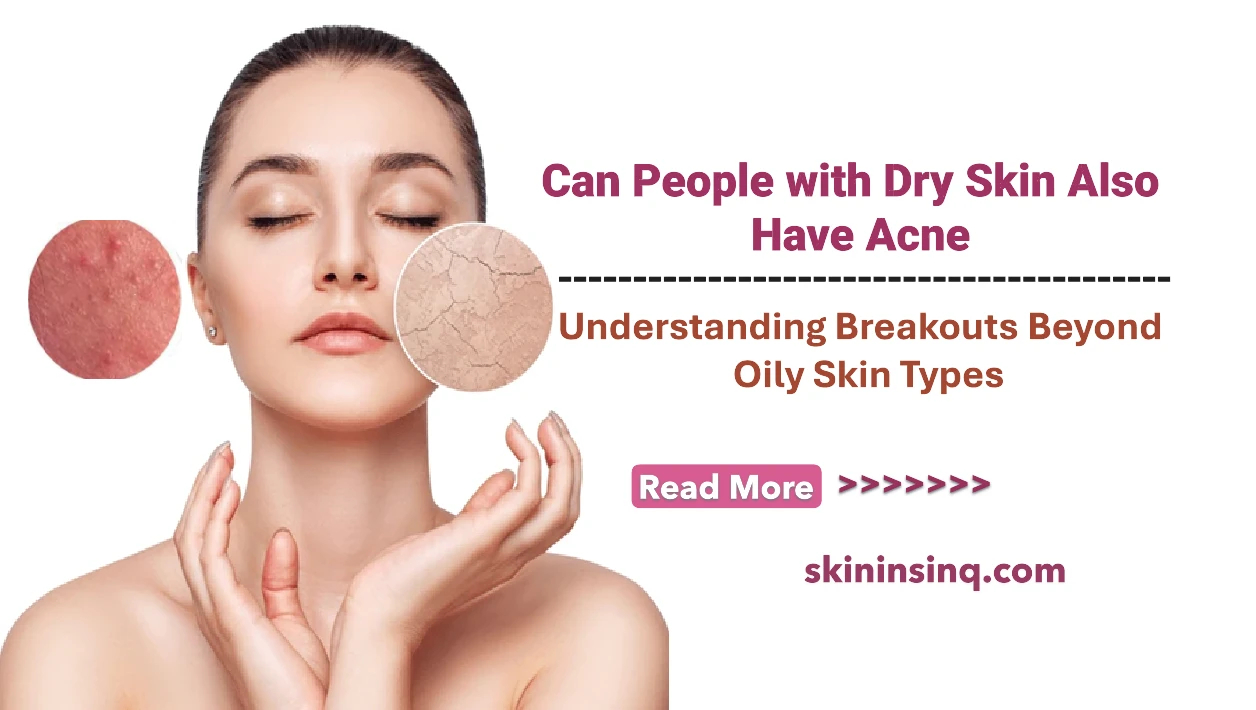Can People with Dry Skin Also Have Acne? Understanding Breakouts Beyond Oily Skin Types
Can People with Dry Skin Also Have Acne? Understanding Breakouts Beyond Oily Skin Types
Acne is commonly associated with oily skin, leading many to believe that dry skin is immune to breakouts. However, this is a misconception. People with dry skin can also develop acne, and in some cases, their breakouts can be just as persistent and frustrating as those experienced by those with oily skin. Understanding how acne can affect dry skin is essential for managing it effectively without further irritating or drying out the skin.
Why Does Acne Occur?
Acne develops when hair follicles become clogged with dead skin cells, sebum (oil), and bacteria. While excess oil is a well-known trigger, it's not the only factor. Hormones, genetics, skincare habits, environmental conditions, and certain medications can also contribute to acne, even in individuals with dry or sensitive skin.
How Can Dry Skin Lead to Acne?
Here are a few reasons why acne can develop on dry skin:
1. Clogged Pores from Dead Skin Buildup
Dry skin tends to shed flaky skin cells. If these are not removed gently through exfoliation or cleansing, they can accumulate and clog pores, leading to blackheads, whiteheads, and inflamed pimples.
2. Compensatory Oil Production
Sometimes, if the skin is too dry—especially due to over-cleansing or harsh products—it may try to compensate by producing more oil, ironically leading to breakouts despite the skin’s dryness.
3. Use of Comedogenic Products
People with dry skin often use heavy creams or occlusive moisturizers to relieve flakiness. Some of these may be comedogenic, meaning they can block pores and cause breakouts.
4. Inflammation and Irritation
Dry skin tends to be more reactive and sensitive, making it prone to inflammation. This can trigger or worsen acne, especially inflammatory types like papules or pustules.
Managing Acne on Dry Skin: A Delicate Balance
Treating acne on dry skin requires a gentle and balanced approach that targets breakouts without stripping away necessary moisture.
1. Use Mild Cleansers
Choose a non-foaming, sulfate-free, and fragrance-free cleanser that removes impurities without drying out your skin. Avoid soap bars or alcohol-based products.
2. Hydrate Generously
Hydration is key. Use non-comedogenic moisturizers containing ingredients like hyaluronic acid, ceramides, or glycerin. These help strengthen the skin barrier and reduce irritation.
3. Gentle Exfoliation
Dry skin still needs exfoliation, but harsh scrubs can worsen inflammation. Opt for mild chemical exfoliants like lactic acid or PHA (polyhydroxy acids) that slough off dead skin without causing micro-tears.
4. Spot Treatments, Not Full-Face Drying Agents
Instead of using strong acne treatments all over your face, use targeted spot treatments with ingredients like benzoyl peroxide or salicylic acid only where needed.
5. Avoid Over-Washing or Over-Treating
Less is more. Overloading your skin with too many active ingredients can lead to further dryness, sensitivity, and acne flare-ups.
Conclusion
Yes, people with dry skin can absolutely get acne. While it's more commonly associated with oily skin, breakouts can occur in all skin types. The key is to treat acne gently, nourish the skin barrier, and use products that support both hydration and clarity. With the right care, it's possible to manage acne without sacrificing your skin’s comfort and health.

Related Blog
What Causes Oily Skin and Can It Be Managed Naturally? Exploring Root Causes and Gentle Solutions
Aug 2, 2025 by Admin
General
Does Popping Pimples Always Make Acne Worse? The Risks and Realities of Squeezing Breakouts
Aug 2, 2025 by Admin
General Acne
Do Oily Foods Make Pimples Worse? Uncovering the Truth Behind Diet and Breakouts
Aug 2, 2025 by Admin
General Acne
Does Chocolate Cause Pimples but Not Acne? Debunking the Sweet Myth About Skin Breakouts
Aug 2, 2025 by Admin
General Acne